- Home
- Cecelia Ahern
Lyrebird Page 15
Lyrebird Read online
Page 15
‘Did you hear that?’ she’d gasped, before leaving their breakfast table to go to the balcony where she leaned over and tried to locate the source of the mystery phrase.
He hadn’t noticed it happen, but he’d stopped hearing everything outside. And as far as he knew, the same had since happened to Bo. Things happen like that.
Laura sits up as soon as they enter the city, able to tell the difference in the light, the sound, and in the stop-start of the traffic. She stretches and looks around, and Solomon studies her face, the first time he’s had a clear view of her for hours. If she was sleeping, she doesn’t look like it; she looks wide awake, beautiful, innocently looking from one window to another, taking it all in. She’s never been to a city. The lights and action disappear as they drive into the underground car park below the apartment block.
‘My apartment’s above,’ Solomon explains, as she looks around in confusion.
He slams the car door shut and it reverberates around the echoing underground. Laura jumps, startled. Somebody in the distance throws a trash bag into the communal bin and bangs it closed. It echoes and she jumps again.
Solomon watches her from the corner of his eye, concerned about bringing her here. ‘There’s a hotel on the next block. The Marker. It’s nice. Modern, fancy rooftop bar, you can see the whole city.’ He couldn’t afford to put her up, but perhaps Bo could find the funds. She should be able to for the subject of her documentary. ‘You can stay there, if you like.’
‘No,’ she says quickly. ‘I want to stay with you.’
‘Okay no problem,’ he says easily, warmth flooding through him.
He lifts the bags from the boot, and closes it more carefully than he had with the doors. The exit door opens, a heavy fire door that slams and reverberates through the space. High heels walk across the concrete, the car beside them lights up and beeps. Laura mimics it, stepping away from the car. The woman looks at her as she climbs into her car, a scowl on her face, as though Laura’s sound has insulted her. She starts up the engine and Solomon moves Laura away quickly.
‘Okay. Let’s get you inside,’ he says, lifting the bags and leading her to the exit.
Bo is standing at the front door of the apartment. Solomon and Laura should be arriving soon. She feels nervous and she’s not sure why. That’s a lie. She’s pretty sure why, but she’s trying to pretend that Solomon and Laura being together alone for two days without her is not a cause for concern. She wants to be the kind of girlfriend who doesn’t worry about things like that. Jealousy is a killer, a destroyer. She was never a jealous person – not in relationships, she never felt threatened that way. Work is another matter; if someone makes a better documentary, if someone is doing better than her, she’ll admit she feels the jealousy then. She uses that feeling to drive her to do better. But she’s not sure what this feeling can do for a relationship. She doesn’t know how to be better than Laura, nor does she want to be.
And she isn’t feeling this way because of what Jack said to her last night. It wasn’t him that triggered alarm bells about her and Solomon, planting seeds of doubt, whispers in her ear and then disappearing into the night. The feeling was already inside her. Laura has insisted on being with Solomon at every single turn. What girlfriend would allow it to happen? Not just allow it, encourage it. She’s pushing Solomon towards Laura. And that’s what has brought on this anxiety, this twisted feeling in her stomach: the fact that she knows that she’s letting it happen. She’s pretending she’s not, because to admit otherwise would be callous, weird, unfeeling. She’s seeing what’s between them right in front of her and she’s encouraging it, for the sake of her documentary. There. She’s admitted it.
The lift moves into action, ascends to her floor. They won’t be expecting her to be ready for them, at the door. She wants to see their faces, not the ones they prepare before walking into the apartment. She’ll know if something’s happened by looking at them. The doors open. Her stomach twists, cramps. Solomon steps out. He’s alone. He gives her a wide warning look with his eyes, then turns back towards the lift.
‘Come on, Laura, we’re here.’
Bo moves to the left and peers in. Laura is huddled in the corner of the lift with her hands over her ears. She rises, one of her bags in her hand, looking as timid as a mouse. The knot in Bo’s stomach clears immediately. She’s ashamed by her relief, she’s ashamed by the pleasure that seeing Laura in this state brings to her.
‘She doesn’t like lifts,’ Solomon says, a little nervously.
‘Hi, Laura,’ she says gently. ‘Welcome.’
Laura’s thanks is barely a whisper as she steps into the flat.
‘How was your trip?’ she asks tentatively, as Laura looks around.
Solomon shakes his head for her not to ask, but it’s too late.
Laura opens her mouth and a flow of sounds surges out, merged and meshed together, one running into another, like a badly mixed song.
Bo’s eyes widen, not quite sure how to deal with the cacophony of noise. It’s negative noise, something happened, something that has upset her. Stunned, she watches as Solomon leads Laura to the small spare room, as though she’s a fragile broken bird. And all the while Bo tries to decipher one sound from another but can’t. Did she hear a gunshot?
Solomon, however, understands them all, he identifies each and every single one of them as she repeats them over and over, an insight into her confused mind, her hurt heart. Mossie’s whimpers. An angry Joe. The fallen hare, the gunshot, a door banging, high heels on concrete, the beep of a car alarm, the sound of the exit door, the whoosh of the lift when he pressed the button. A police siren.
And in there, hidden amongst them, was the sound of Bo making love to Solomon.
Telltale sounds. A medley of all the sounds Laura doesn’t like.
Dublin city is alive with new sounds for Laura. From the hundreds of people who swarmed out of the theatre down the block, dispersing as they found their cars or hailed taxis to different parts of the city and back to their lives. The taxi drivers gather under the balcony as a sudden rain shower takes over. Even the sound of the rain is different. It falls on concrete and the canal across the road. No leaves to delay its eventual fall to the ground, no soil to soak it up. A police siren in the distance, somebody shouting, a group laughing … each sound sends her rushing to the bedroom window.
She is grateful the room is so small. She doesn’t think she could deal with a large strange space. There is too much of it, she needs her own cocoon. It contains a single bed that’s pushed up against the wall; on the other side of the wall is Solomon and Bo’s bedroom. There’s a rail full of his shirts and so the room smells of him. Bo has the wardrobe in their bedroom, he’d told her. He is good that way, continuing to talk when he knows she’s unsettled. It’s calming for her. His voice is soothing, soft. Especially his singing voice. She closes her eyes to hear him again at the party, to relive the moment, and she’s barely placed herself back in the room when a sound from outside causes her to jump. It’s a girl laughing with a friend. Her heart pounds.
In Toolin cottage there were always sounds. It was never silent, despite what the crew say about its peace. Laura was used to those sounds though. She remembers the first night staying there alone. She was sixteen years old, she had been so afraid. No mother, she had lost her some months before, and she and Gaga had said their tearful goodbyes. She was no longer asleep in the next room but knowing that she was not far away eased her pain and fear. When she had learned of Gaga’s death six months later, she’d plummeted to an all-time low. She felt utterly alone, but her grandmother’s death had strengthened the friendship between her and Tom. Tom had shared the news with her in his usual way, with little sensitivity. He seemed to learn this over time. Knowing that she was alone, he stayed a while longer on visits, offered to help out more, fixed things she didn’t ask him to fix, took more care. Having Tom nearby to help her if she needed him in an emergency was vital too. Sometimes Tom fixed her toilet,
provided paint, or nailed something together in the cottage, provided medicine, but she was mostly self-sufficient. She liked that feeling, thrived on it, but she felt safe knowing that the twins were nearby, even if Joe didn’t know about her.
There was never a hug, never a kiss, never even a touch between her and Tom but most important of all he tethered her to a world she sometimes felt locked outside of.
‘He’s not to know,’ was all Tom had ever said about the issue when she’d asked, and that’s how it was.
It had been a long time since she’d remembered her first night alone in the cottage so vividly. She’d lain in bed, looking out the curtainless window at the black sky, feeling like she was being watched even though the only people around for miles were Joe and Tom. Despite the work Tom had done to improve the old cottage before her arrival, it was cold. She had wrapped herself in sheepskin, huddled down and listened to the sounds that were alien to her, trying to place each noise and understand her new world. Ten years later, twenty-six years old, and she is back to feeling how she’d felt the first night in the Toolin cottage.
‘I feel like I’m in Cork, in the Toolin cottage,’ Bo whispers, then giggles.
‘Stop,’ Solomon says gently, not wanting Laura to hear her laughing. ‘An owl,’ he whispers, trying to identify the sounds coming from Laura’s room. He recalls being back in her cottage, standing at the window and flinching at each sound. She had identified each sound for him, to help calm him. Perhaps he should be in her room doing the same thing for her. He starts to listen out, not just to Laura, but to the sounds inside and outside his apartment. He hears things he never even noticed before.
They’re both silent as they listen. Flat on their backs on the bed, staring up at the ceiling.
‘Bat?’ Bo says, recognising a sound.
‘Some kind of bird.’ He shrugs. ‘That’s a frog croaking,’ he whispers, identifying the next one.
‘Wow, rain on a roof,’ she whispers, snuggling down. ‘The wind?’
‘Who knows,’ he says, enjoying being here with Bo, their closeness. They’re naked, the covers are around their waists on a clammy night that the rain has tried to clear, listening to the night sounds of a remote mountain. He feels magically transported to another place, just by closing his eyes. It’s an intimate insight into what it would be like to lie with Laura in her cottage at night.
‘This is so romantic, I feel like we’re camping out,’ Bo says, snuggling into him, her head under his armpit, her body fitting next to his. She lifts her thigh across his body, nestles close to him. ‘Ever had sex under the stars?’ She starts kissing his chest, and works her way down his torso, his pelvis.
But it dawns on him that this is not romantic. It’s Laura, alone in a strange place, remembering the things about home that she misses, conjuring familiar sounds to chase away her loneliness. He tries to shake away the thoughts of her, he tries to stop hearing her and get lost in Bo. But he can’t, because even when she’s silent she’s still in his head.
18
The documentary crew and Laura sit in the laboratory of David Kelly of the Irish Ornithology Society. Rachel examines the monitor beside her, a nicely lit set-up, birdcages in the background, scientific equipment placed strategically in the shot while Mr Kelly looks on feeling powerless. ‘Well, okay, but it wouldn’t ordinarily be there,’ he says, a little flustered as Bo moves his bird posters from one wall to another to fit the frame better.
He’s finally in situ with Bo off camera, seated and ready to begin the interview. Solomon is all set, boom mic extended over them both. Laura is over his left shoulder. Everyone is happy, apart from Solomon; it is a sound nightmare. Each time David Kelly speaks, a bird squawks. And if that wasn’t bad enough, Laura mimics it.
Just as Rachel loses her temper when something interferes with her shot, Solomon’s mood is severely altered when something affects his sound. While David Kelly looks at Laura, exasperated at having to begin his response again, Solomon doesn’t feel the slightest agitation. He’s just happy she’s here with him, her sounds a reminder of her presence, which is rather miraculous when it comes to his temperament.
She looks at David, wide-eyed and innocent, as if she hasn’t done anything at all.
Solomon felt before the interview even began that it was inappropriate to bring her here, he’s not sure how much she should be listening to as others speak about her or about aspects of her. Who ever needs to know what people say about them behind their backs? He’s shared this with Bo and while she agreed they don’t have many options; Laura refuses to stay in the apartment alone. She wants to be with Solomon.
‘Okay, Dr Kelly, please go again. Same question, same answer, please,’ Bo says.
‘Certainly. A lyrebird is a ground …’
‘I’m sorry, could you begin without the “certainly”.’
‘My apologies, of course.’ He leaves a silence. Rachel gives him the nod. Rolling. ‘A lyrebird is a ground-dwelling Australian bird known for its—’
‘Hold on …’ Bo interrupts. ‘Sorry, guys. Too fast,’ she stops him. And she’s right. Dr Kelly is trying to get the words out before another bird, and Laura, squawks. ‘A little slower – as you were before was perfect. Please continue.’
Headphones on. Rolling.
‘A lyrebird is a ground-dwelling Australian bird that is famous for its—’
Squawwwwk. Bird.
Squawwwwk. Laura.
‘… powerful mimicry,’ he continues. ‘It makes its home in the densely timbered …’
Squawwwwk. Bird.
Squawwwwk. Laura.
‘… mountains. Very few people see lyrebirds. Though they …’
Tap tap of a beak against the cage, which is mimicked by Laura.
Solomon looks at Bo with frustration. This is a mess. Even David Kelly is looking flustered, continuing to talk while it looks like he’s being constantly prodded in the ribs by an invisible attacker.
‘No,’ Rachel says suddenly, interrupting the entire thing. Solomon removes his headphones and tries to hide his smile. ‘This isn’t good.’
‘Maybe we should try somewhere else where there aren’t birds,’ Bo suggests perkily, keeping the energy up.
David Kelly sneaks a glimpse at his watch.
The boardroom is quiet. No traffic, no people, no phones, no hum of an air-conditioning unit. The elements are good for Solomon. There’s lots of dark mahogany and Rachel has more work to do with lighting, but it works. There are birds in the frame, birds in glass containers, standing on branches. Only problem is, they’re dead, and stuffed, which concerns Solomon.
Laura joins them. She looks at the glass case of birds. Solomon sees the confusion in her face, but she doesn’t say anything. He places the headphones on. Laura’s fingers run over the glass cabinet, trying to get to the birds inside and before David Kelly can even speak Laura’s sounds begin again; the gunshot, the hare that fell, its whimpers, Mossie’s dying sounds. A new sound, the computer gunshots from the little boy’s computer game in the hotel a few days ago, as she links the two.
Dr Kelly stands up and looks at her. ‘Goodness. That is remarkable.’
Laura looks up, sees everyone staring at her and her sounds stop. Her hand falls from the glass. ‘How did they die?’
‘Lie,’ Solomon says through a cough to him.
‘Oh. Um. Natural causes,’ he says.
Laura frowns and looks at Solomon. She imitates the cough he has made, over and over until the word lie is clearly audible. Solomon sighs.
‘Look, I think we should do this in your office. It’s the best place,’ Bo suddenly decides.
‘You said you didn’t like that room,’ David Kelly says, like he’s an offended child.
‘Now it’s perfect,’ Bo says, picking up her things and moving everyone on again.
‘I really should get going. I have a lecture …’
‘Won’t be much longer,’ Bo says with a reassuring smile. ‘And you get more time t
o spend with Lyrebird. Think of it as research.’
This idea appeals to Dr Kelly, he is so fascinated with this birdlike woman. He examines her as the others move the equipment, and chuckles nerdily to himself.
Laura stares back at him, looking him up and down in the same way as he did to her, then mimics his chuckle. He claps his hands with glee.
Finally, in Dr Kelly’s office – a small room, filled with paperwork, that is dominated by his desk – they sit down to do the interview.
‘Dr Kelly,’ Bo says smoothly, ‘Could you please tell us about the male lyrebird please, specifically about its mimicry talents.’
‘The male lyrebird is a popular forest entertainer, admired and liked by other singers. Much of the vocal power of the lyrebird is devoted to mimicry of the songs of other birds, but he is also a very efficient singer in his own right. Roughly one-third of his singing is original, one-third may be described as semi-original, based quite clearly on bush sounds, elaborated and combined into a harmonious and continuous melody; the remainder of the song is mimicry, pure and simple; mimicry that is so accurate it’s impossible to distinguish between the genuine and the imitated. There appears to be no sound that is beyond the power of the lyrebird to reproduce.
‘Lyrebirds are creatures of habit. They thrive on routine. The mating season begins in May and ends in August. At the beginning of the mating season the male lyrebird builds a number of display mounds and diligently woos the female with song and dance. His mate follows him wherever he goes and watches every performance from a prominent position. When a performance ends, they both search for food, but as soon as the male begins to sing, the female stops to hear her mate. Mate birds are seldom seen apart and their continued devotion to their offspring indicates a family spirit.’
Solomon smiles at this description. Bo’s head turns quickly to look at him, and he looks away, pretending to twiddle with his audio.

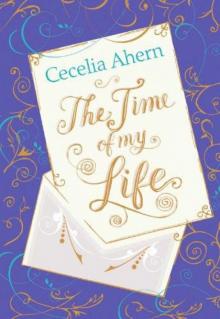 The Time of My Life
The Time of My Life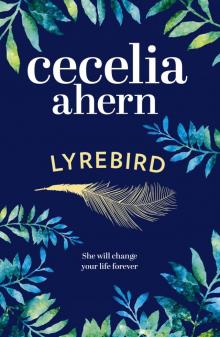 Lyrebird
Lyrebird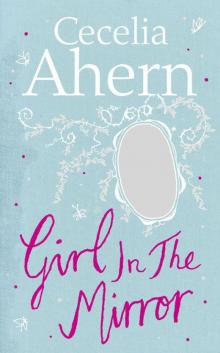 Girl in the Mirror
Girl in the Mirror Perfect
Perfect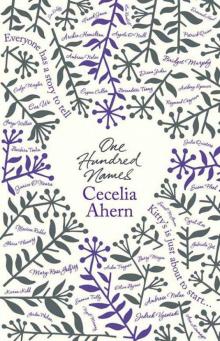 One Hundred Names
One Hundred Names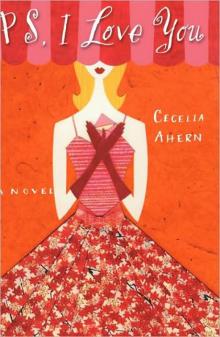 PS, I Love You
PS, I Love You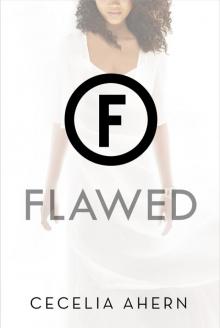 Flawed
Flawed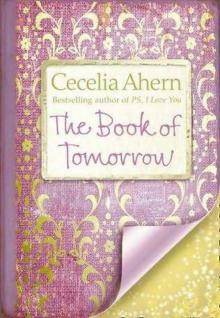 The Book of Tomorrow
The Book of Tomorrow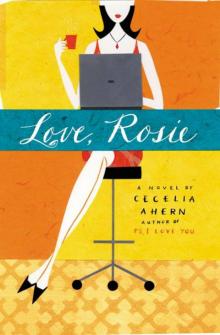 Love, Rosie
Love, Rosie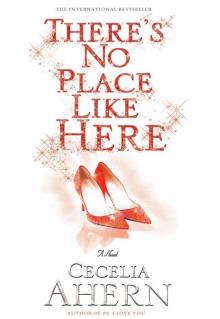 A Place Called Here
A Place Called Here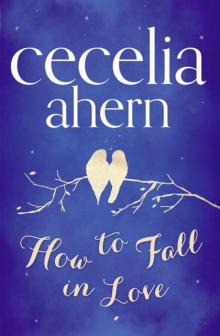 How to Fall in Love
How to Fall in Love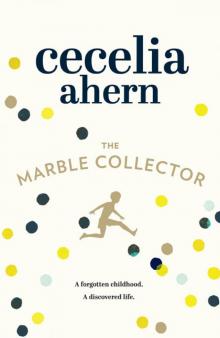 The Marble Collector
The Marble Collector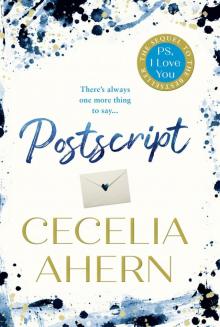 Postscript
Postscript The Gift
The Gift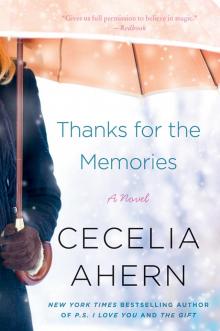 Thanks for the Memories
Thanks for the Memories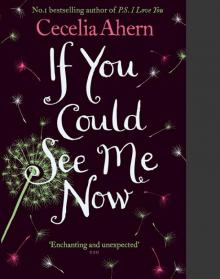 If You Could See Me Now
If You Could See Me Now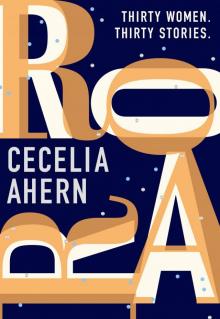 Roar
Roar Cecelia Ahern 2-book Bundle
Cecelia Ahern 2-book Bundle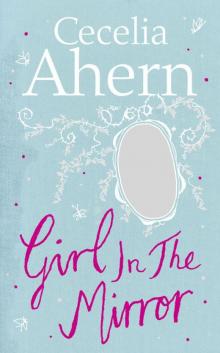 Girl in the Mirror: Two Stories
Girl in the Mirror: Two Stories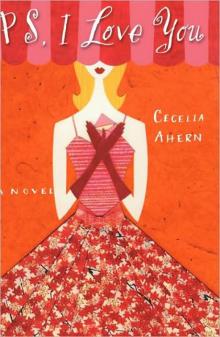 PS, I Love You: A Novel
PS, I Love You: A Novel Cecelia Ahern Short Stories
Cecelia Ahern Short Stories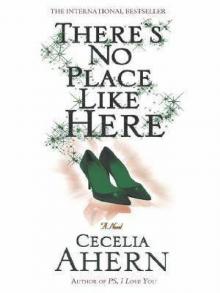 There’s No Place Like Here
There’s No Place Like Here